- Home
- F. Scott Fitzgerald
Flappers and Philosophers Page 10
Flappers and Philosophers Read online
Page 10
They were still standing, and as she spoke she made a little movement toward the door. Gedney looked at her miserably, trying, here at the end, to treasure up a last picture of her—and then suddenly both of them were stiffened into marble at the sound of steps on the walk outside. Instantly her arm reached out grasping the Lapel of his coat—half urged, half swung him through the big door into the dark dining-room.
"I'll make him go up-stairs," she whispered close to his ear; "don't move till you hear him on the stairs. Then go out the front way."
Then he was alone listening as she greeted her husband in the hall.
Harold Piper was thirty-six, nine years older than his wife. He was handsome—with marginal notes: these being eyes that were too close together, and a certain woodenness when his face was in repose. His attitude toward this Gedney matter was typical of all his attitudes. He had told Evylyn that he considered the subject closed and would never reproach her nor allude to it in any form; and he told himself that this was rather a big way of looking at it—that she was not a little impressed. Yet, like all men who are preoccupied with their own broadness, he was exceptionally narrow.
He greeted Evylyn with emphasized cordiality this evening.
"You'll have to hurry and dress, Harold," she said eagerly; "we're going to the Bronsons'."
He nodded.
"It doesn't take me long to dress, dear," and, his words trailing off, he walked on into the library. Evylyn's heart clattered loudly.
"Harold—" she began, with a little catch in her voice, and followed him in. He was lighting a cigarette. "You'll have to hurry, Harold," she finished, standing in the doorway.
"Why?" he asked a trifle impatiently; "you're not dressed yourself yet, Evie."
He stretched out in a Morris chair and unfolded a newspaper. With a sinking sensation Evylyn saw that this meant at least ten minutes—and Gedney was standing breathless in the next room. Supposing Harold decided that before he went upstairs he wanted a drink from the decanter on the sideboard. Then it occurred to her to forestall this contingency by bringing him the decanter and a glass. She dreaded calling his attention to the dining-room in any way, but she couldn't risk the other chance.
But at the same moment Harold rose and, throwing his paper down, came toward her.
"Evie, dear," he said, bending and putting his arms about her, "I hope you're not thinking about last night—" She moved close to him, trembling. "I know," he continued, "it was just an imprudent friendship on your part. We all make mistakes."
Evylyn hardly heard him. She was wondering if by sheer clinging to him she could draw him out and up the stairs. She thought of playing sick, asking to be carried up—unfortunately she knew he would lay her on the couch and bring her whiskey.
Suddenly her nervous tension moved up a last impossible notch. She had heard a very faint but quite unmistakable creak from the floor of the dining room. Fred was trying to get out the back way.
Then her heart took a flying leap as a hollow ringing note like a gong echoed and re-echoed through the house. Gedney's arm had struck the big cut-glass bowl.
"What s that!" cried Harold. "Who's there?"
She clung to him but he broke away, and the room seemed to crash about her ears. She heard the pantry-door swing open, a scuffle, the rattle of a tin pan, and in wild despair she rushed into the kitchen and pulled up the gas. Her husband's arm slowly unwound from Gedney's neck, and he stood there very still, first in amazement, then with pain dawning in his face.
"My golly!" he said in bewilderment, and then repeated: "My golly!"
He turned as if to jump again at Gedney, stopped, his muscles visibly relaxed, and he gave a bitter little laugh.
"You people—you people—" Evylyn's arms were around him and her eyes were pleading with him frantically, but he pushed her away and sank dazed into a kitchen chair, his face like porcelain. "You've been doing things to me, Evylyn. Why, you little devil! You little devil!"
She had never felt so sorry for him; she had never loved him so much.
"It wasn't her fault," said Gedney rather humbly. "I just came." But Piper shook his head, and his expression when he stared up was as if some physical accident had jarred his mind into a temporary inability to function. His eyes, grown suddenly pitiful, struck a deep, unsounded chord in Evylyn—and simultaneously a furious anger surged in her. She felt her eyelids burning; she stamped her foot violently; her hands scurried nervously over the table as if searching for a weapon, and then she flung herself wildly at Gedney.
"Get out!" she screamed, dark eves blazing, little fists beating helplessly on his outstretched arm. "You did this ! Get out of here—get out—get out! Get out!"
II
Concerning Mrs. Harold Piper at thirty-five, opinion was divided—women said she was still handsome; men said she was pretty no longer. And this was probably because the qualities m her beauty that women had feared and men had followed had vanished. Her eyes were still as large and as dark and as sad, but the mystery had departed; their sadness was no longer eternal, only human, and she had developed a habit, when she was startled or annoyed, of twitching her brows together and blinking several times. Her mouth also had lost: the red had receded and the faint down-turning of its corners when she smiled, that had added to the sadness of the eyes and been vaguely mocking and beautiful, was quite gone. When she smiled now the corners of her lips turned up. Back in the days when she revelled in her own beauty Evylyn had enjoyed that smile of hers—she bad accentuated it. When she stopped accentuating it, it faded out and the last of her mystery with it.
Evylyn had ceased accentuating her smile within a month after the Freddy Gedney affair. Externally things had gone an very much as they had before. But in those few minutes during which she had discovered how much she loved her husband Evylyn had realized how indelibly she had hurt him. For a month she struggled against aching silences, wild reproaches and accusations—she pled with him, made quiet, pitiful little love to him, and he laughed at her bitterly—and then she, too, slipped gradually into silence and a shadowy, impenetrable barrier dropped between them. The surge of love that had risen in her she lavished on Donald, her little boy, realizing him almost wonderingly as a part of her life.
The next year a piling up of mutual interests and responsibilities and some stray flicker from the past brought husband and wife together again—but after a rather pathetic flood of passion Evylyn realized that her great opportunity was gone. There simply wasn't anything left. She might have been youth and love for both—but that time of silence had slowly dried up tile springs of affection and her own desire to drink again of them was dead.
She began for the first time to seek women friends, to prefer books she had read before, to sew a little where she could watch her two children to whom she was devoted. She worried about little things—if she saw crumbs on the dinner-table her mind drifted off the conversation: she was receding gradually into middle age.
Her thirty-fifth birthday had been an exceptionally busy one, for they were entertaining on short notice that night, as she stood in her bedroom window in the late afternoon she discovered that she was quite tired. Ten years before she would have lain down and slept, but now she had a feeling that things needed watching: maids were cleaning down-stairs, bric-à-brac was all over the floor, and there were sure to be grocery-men that had to be talked to imperatively—and then there was a letter to write Donald, who was fourteen and in his first year away at school.
She had nearly decided to lie down, nevertheless, when she heard a sudden familiar signal from little Julie down-stairs. She compressed her lips, her brows twitched together, and she blinked.
"Julie!" she called.
"Ah-h-h-ow!" prolonged Julie plaintively. Then the voice of Hilda, the second maid, floated up the stairs.
"She cut herself a little, Mis' Piper."
Evylyn flew to her sewing-basket, rummaged until she found a torn handkerchief, and hurried downstairs. In a moment Julie was cryi
ng in her arms as she searched for the cut, faint, disparaging evidences of which appeared on Julie's dress.
"My thu-umb!" explained Julie. "Oh-h-h-h, t'urts."
"It was the bowl here, the he one," said Hilda apologetically. "It was waitin' on the floor while I polished the sideboard, and Julie come along an' went to foolin' with it. She yust scratch herself."
Evylyn frowned heavily at Hilda, and twisting Julie decisively in her lap, began tearing strips of the handkerchief.
"Now—let's see it, dear."
Julie held it up and Evelyn pounced.
"There!"
Julie surveyed her swathed thumb doubtfully. She crooked it; it waggled. A pleased, interested look appeared in her tear-stained face. She sniffled and waggled it again.
"You precious!" cried Evylyn and kissed her, but before she left the room she levelled another frown at Hilda. Careless! Servants all that way nowadays. If she could get a good Irishwoman—but you couldn't any more—and these Swedes—
At five o'clock Harold arrived and, coming up to her room, threatened in a suspiciously jovial tone to kiss her thirty-five times for her birthday. Evylyn resisted.
"You've been drinking," she said shortly, and then added qualitatively, "a little. You know I loathe the smell of it."
"Evie," he said after a pause, seating himself in a chair by the window, "I can tell you something now. I guess you've known things haven't beep going quite right down-town."
She was standing at the window combing her hair, but at these words she turned and looked at him.
"How do you mean? You've always said there was room for more than one wholesale hardware house in town." Her voice expressed some alarm.
"There was," said Harold significantly, "but this Clarence Ahearn is a smart man."
"I was surprised when you said he was coming to dinner."
"Evie," he went on, with another slap at his knee, "after January first 'The Clarence Ahearn Company' becomes 'The Ahearn, Piper Company'—and 'Piper Brothers' as a company ceases to exist."
Evylyn was startled. The sound of his name in second place was somehow hostile to her; still he appeared jubilant.
"I don't understand, Harold."
"Well, Evie, Ahearn has been fooling around with Marx. If those two had combined we'd have been the little fellow, struggling along, picking up smaller orders, hanging back on risks. It's a question of capital, Evie, and 'Ahearn and Marx' would have had the business just like 'Ahearn and Piper' is going to now." He paused and coughed and a little cloud of whiskey floated up to her nostrils. "Tell you the truth, Evie, I've suspected that Ahearn's wife had something to do with it. Ambitious little lady, I'm told. Guess she knew the Marxes couldn't help her much here."
"Is she—common?" asked Evie.
"Never met her, I'm sure—but I don't doubt it. Clarence Ahearn's name's been up at the Country Club five months—no action taken." He waved his hand disparagingly. "Ahearn and I had lunch together to-day and just about clinched it, so I thought it'd be nice to have him and his wife up to-night—just have nine, mostly family. After all, it's a big thing for me, and of course we'll have to see something of them, Evie."
"Yes," said Evie thoughtfully, "I suppose we will."
Evylyn was not disturbed over the social end of it—but the idea of "Piper Brothers" becoming "The Ahearn, Piper Company" startled her. It seemed like going down in the world.
Half an hour later, as she began to dress for dinner, she heard his voice from down-stairs.
"Oh, Evie, come down!"
She went out into the hall and called over the banister:
"What is it?"
"I want you to help me make some of that punch before dinner."
Hurriedly rehooking her dress, she descended the stairs and found him grouping the essentials on the dining-room table. She went to the sideboard and, lifting one of the bowls, carried it over.
"Oh, no," he protested, "let's use the big one. There'll be Ahearn and his wife and you and I and Milton, that's five, and Tom and Jessie, that's seven: and your sister and Joe Ambler, that's nine. You don't know how quack that stud goes when you make it."
"We'll use this bowl," she insisted. "It'll hold plenty. You know how Tom is."
Tom Lowrie, husband to Jessie, Harold's first cousin, was rather inclined to finish anything in a liquid way that he began.
Harold shook his head.
"Don't be foolish. That one holds only about three quarts and there's nine of us, and the servants'll want some—and it isn't strong punch. It's so much more cheerful to have a lot, Evie; we don't have to drink all of it."
"I say the small one."
Again he shook his head obstinately.
"No; be reasonable."
"I am reasonable," she said shortly. "I don't want any drunken men in the house."
"Who said you did?"
"Then use the small bowl."
"Now, Evie—"
He grasped the smaller bowl to lift it back. Instantly her hands were on it, holding it down. There was a momentary struggle, and then, with a little exasperated grunt, he raised his side, slipped it from her fingers, and carried it to the sideboard.
She looked at him and tried to make her expression contemptuous, but he only laughed. Acknowledging her defeat but disclaiming all future interest in the punch, she left the room.
III
At seven-thirty, her cheeks glowing and her high-piled hair gleaming with a suspicion of brilliantine, Evylyn descended the stairs. Mrs. Ahearn, a little woman concealing a slight nervousness under red hair and an extreme Empire gown, greeted her volubly. Evelyn disliked her on the spot, but the husband she rather approved of. He had keen blue eyes and a natural gift of pleasing people that might have made him, socially, had he not so obviously committed the blunder of marrying too early in his career.
"I'm glad to know Piper's wife," he said simply. "It looks as though your husband and I are going to see a lot of each other in the future."
She bowed, smiled graciously, and turned to greet the others: Milton Piper, Harold's quiet, unassertive younger brother; the two Lowries, Jessie and Tom; Irene, her own unmarried sister; and finally Joe Ambler, a confirmed bachelor and Irene's perennial beau.
Harold led the way into dinner.
"We're having a punch evening," he announced jovially—Evylyn saw that he had already sampled his concoction—"so there won't be any cocktails except the punch. It's m' wife's greatest achievement, Mrs. Ahearn; she'll give you the recipe if you want it; but owing to a slight"—he caught his wife's eye and paused —"to a slight indisposition; I'm responsible for this batch. Here's how!"
All through dinner there was punch, and Evylyn, noticing that Ahearn and Milton Piper and all the women were shaking their heads negatively at the maid, knew she had been right about the bowl; it was still half full. She resolved to caution Harold directly afterward, but when the women lift the table Mrs. Ahearn cornered her, and she found herself talking cities and dressmakers with a polite show of interest.
"We've moved around a lot," chattered Mrs. Ahearn, her red head nodding violently. "Oh, yes, we've never stayed so long in a town before—but I do hope we're here for good. I like it here; don't you?"
"Well, you see, I've always lived here, so, naturally—"
"Oh, that's true," said Mrs. Ahearn and laughed. Clarence always used to tell me he had to have a wife he could come home to and say: "Well, we're going to Chicago to-morrow to live, so pack up."
"I got so I never expected to live anywhere." She laughed her little laugh again; Evylyn suspected that it was her society laugh.
"Your husband is a very able man, I imagine."
"Oh, yes," Mrs. Ahearn assured her eagerly. "He's brainy, Clarence is. Ideas and enthusiasm, you know. Finds out what he wants and then goes and gets it."
Evylyn nodded. She was wondering if the men were still drinking punch back in the dining-room. Mrs. Ahearn's history kept unfolding jerkily, but Evylyn had ceased to listen. The first
odor of massed cigars began to drift in. It wasn't really a large house, she reflected; on an evening like this the library sometimes grew blue with smoke, and next day one had to leave the windows open for hours to air the heavy staleness out of the curtains. Perhaps this partnership might . . . she began to speculate on a new house . . .
Mrs. Ahearn's voice drifted in on her:
"I really would like the recipe if you have it written down somewhere—"
Then there was a sound of chairs in the dining-room and the men strolled in. Evylyn saw at once that her worst fears were realized. Harold's face was flushed and his words ran together at the ends of sentences, while Tom Lowrie lurched when he walked and narrowly missed Irene's lap when he tried to sink onto the couch beside her. He sat there blinking dazedly at the company. Evylyn found herself blinking back at am but she saw no humor in it. Joe Ambler was smiling contentedly and purring on his cigar. Only Ahearn and Milton Piper seemed unaffected.
"It's a pretty fine town, Ahearn," said Ambler, "you'll find that."
"I've found it so," said Ahead pleasantly.
"You find it more, Ahearn," said Harold, nodding emphatically "'f I've an'thin' do 'th it."
He soared into a eulogy of the city, and Evylyn wondered uncomfortably if it bored every one as it bored her. Apparently not. They were all listening attentively. Evylyn broke in at the first gap.
"Where've you been living, Mr. Ahearn?" she asked interestedly. Then she remembered that Mrs. Ahearn had told her, but it didn't matter. Harold mustn't talk so much. He was such an ass when he'd been drinking. But he plopped directly back in.
"Tell you, Ahearn. Firs' you wanna get a house up here on the hill. Get Stearne house or Ridgeway house. Wanna have it so people say: 'There's Ahearn house.' Solid, you know, tha's effec' it gives."
Evylyn flushed. This didn't sound right at all. Still Ahearn didn't seem to notice anything amiss, only nodded gravely.
"Have you been looking—" But her words trailed off unheard as Harold's voice boomed on.

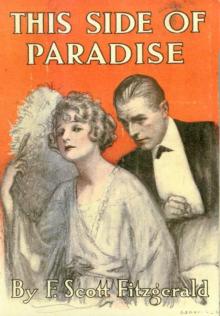 This Side of Paradise
This Side of Paradise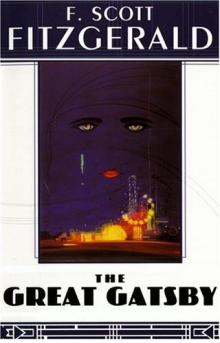 The Great Gatsby
The Great Gatsby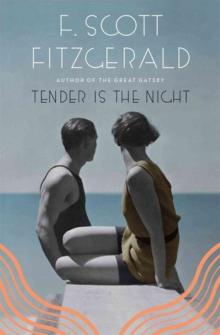 Tender Is the Night
Tender Is the Night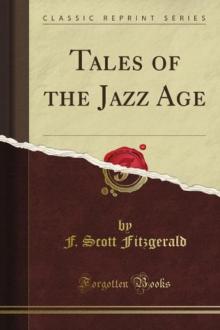 Tales of the Jazz Age (Classic Reprint)
Tales of the Jazz Age (Classic Reprint)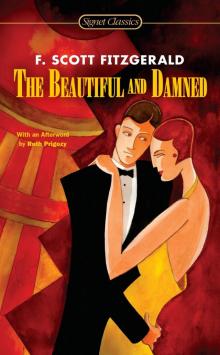 The Beautiful and Damned
The Beautiful and Damned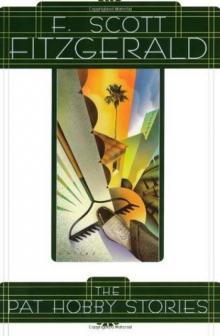 The Pat Hobby Stories
The Pat Hobby Stories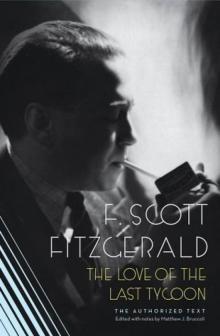 The Love of the Last Tycoon
The Love of the Last Tycoon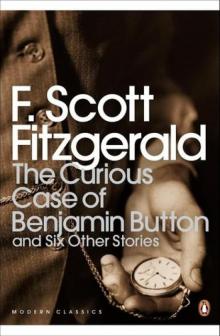 The Curious Case of Benjamin Button and Six Other Stories
The Curious Case of Benjamin Button and Six Other Stories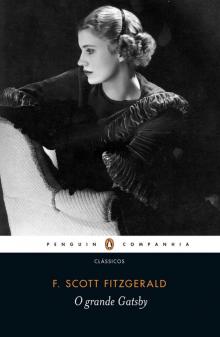 O Grande Gatsby (Penguin)
O Grande Gatsby (Penguin)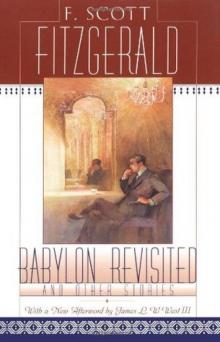 Babylon Revisited and Other Stories
Babylon Revisited and Other Stories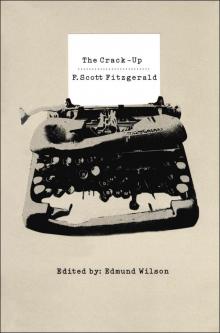 The Crack-Up
The Crack-Up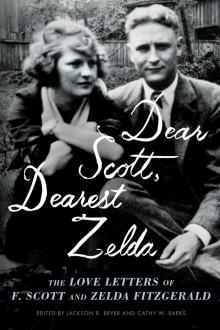 Dear Scott, Dearest Zelda
Dear Scott, Dearest Zelda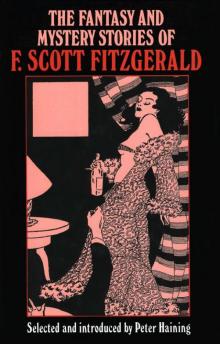 The Fantasy and Mystery Stories of F Scott Fitzgerald
The Fantasy and Mystery Stories of F Scott Fitzgerald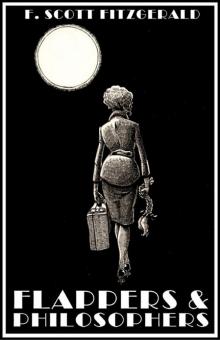 Flappers and Philosophers
Flappers and Philosophers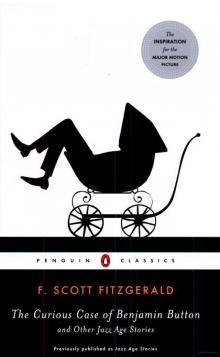 The Curious Case of Benjamin Button and Other Jazz Age Stories (Penguin Classics)
The Curious Case of Benjamin Button and Other Jazz Age Stories (Penguin Classics)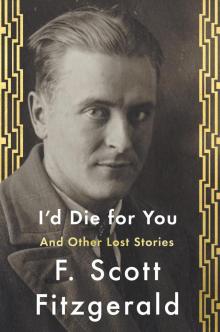 I'd Die For You
I'd Die For You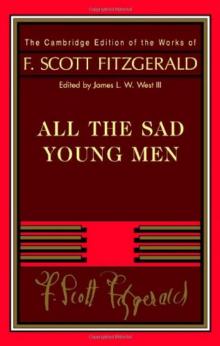 All the Sad Young Men
All the Sad Young Men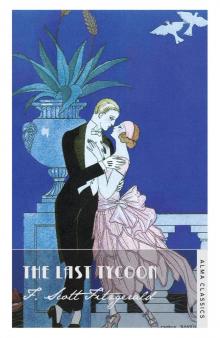 The Last Tycoon
The Last Tycoon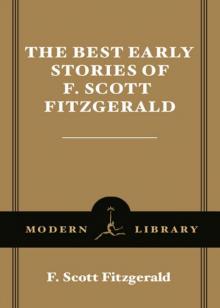 The Best Early Stories of F. Scott Fitzgerald
The Best Early Stories of F. Scott Fitzgerald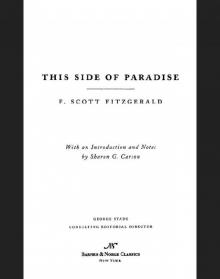 This Side of Paradise (Barnes & Noble Classics Series)
This Side of Paradise (Barnes & Noble Classics Series)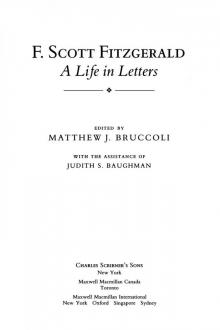 A Life in Letters
A Life in Letters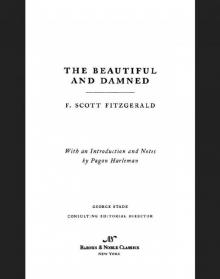 Beautiful and Damned (Barnes & Noble Classics Series)
Beautiful and Damned (Barnes & Noble Classics Series)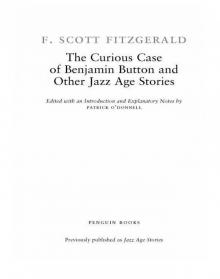 The Curious Case of Benjamin Button and Other Jazz Age Stories
The Curious Case of Benjamin Button and Other Jazz Age Stories Tales of the Jazz Age
Tales of the Jazz Age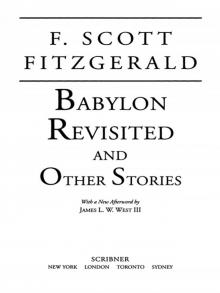 Babylon Revisited
Babylon Revisited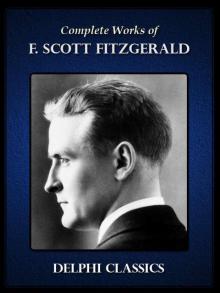 Complete Works of F. Scott Fitzgerald UK (Illustrated)
Complete Works of F. Scott Fitzgerald UK (Illustrated)